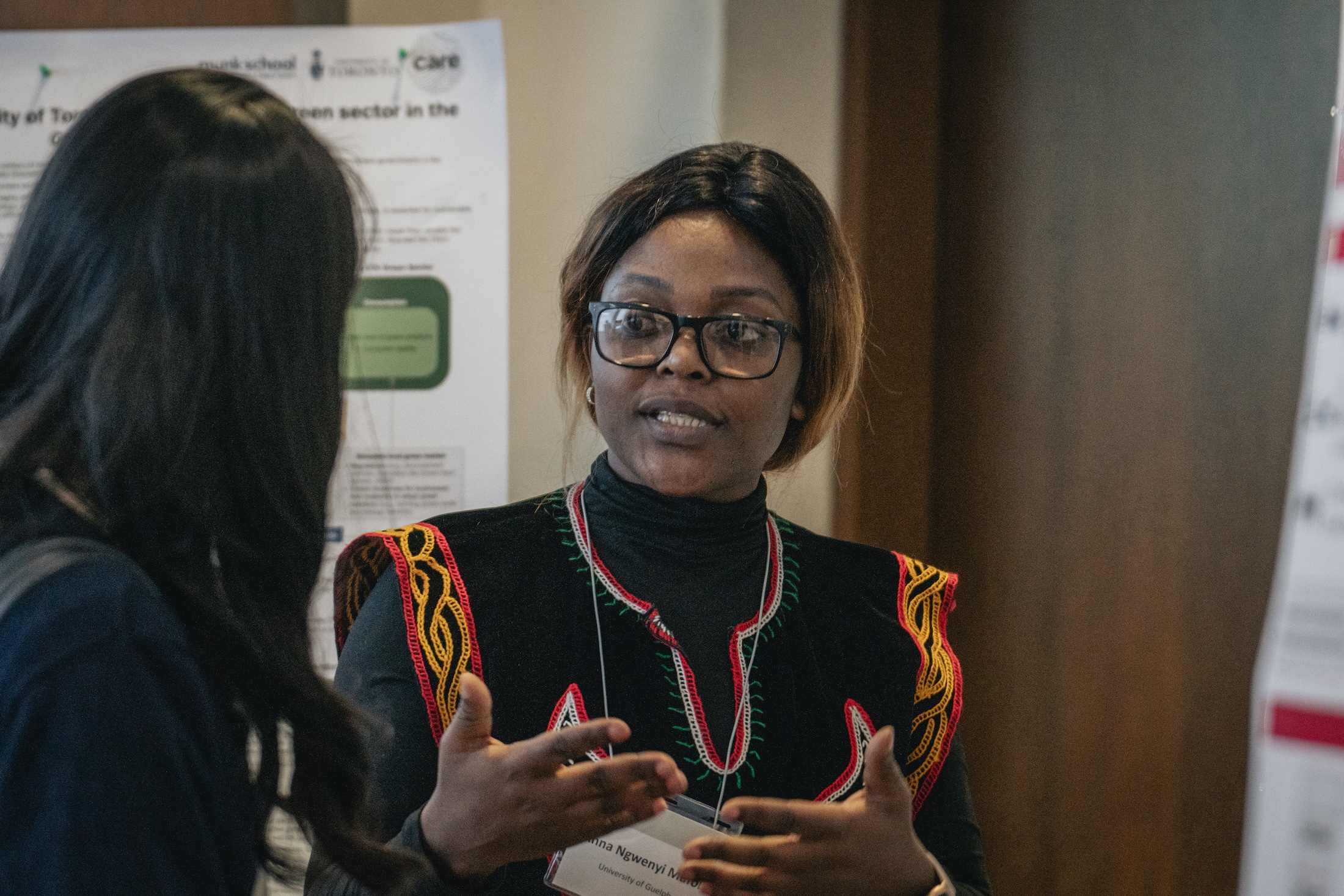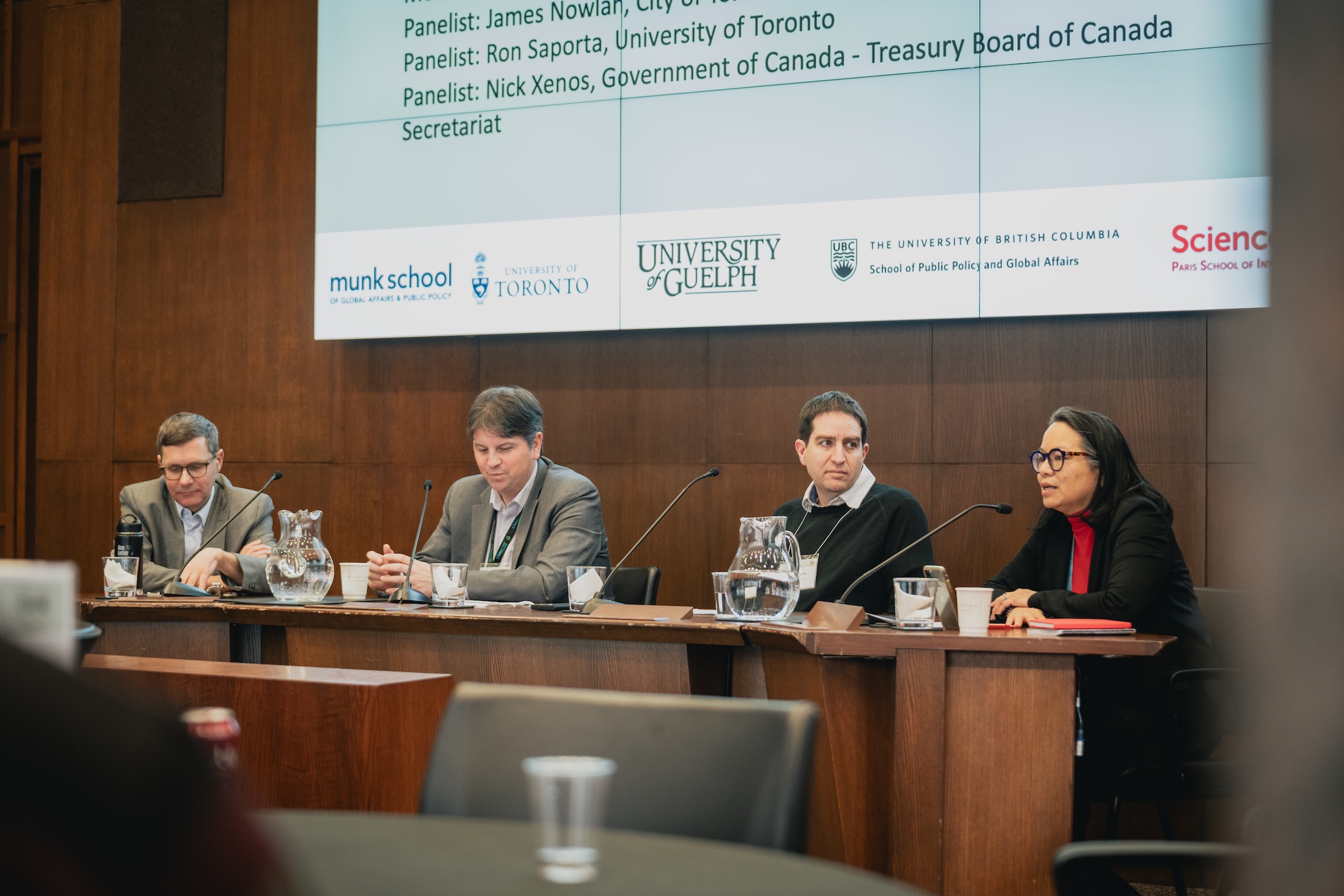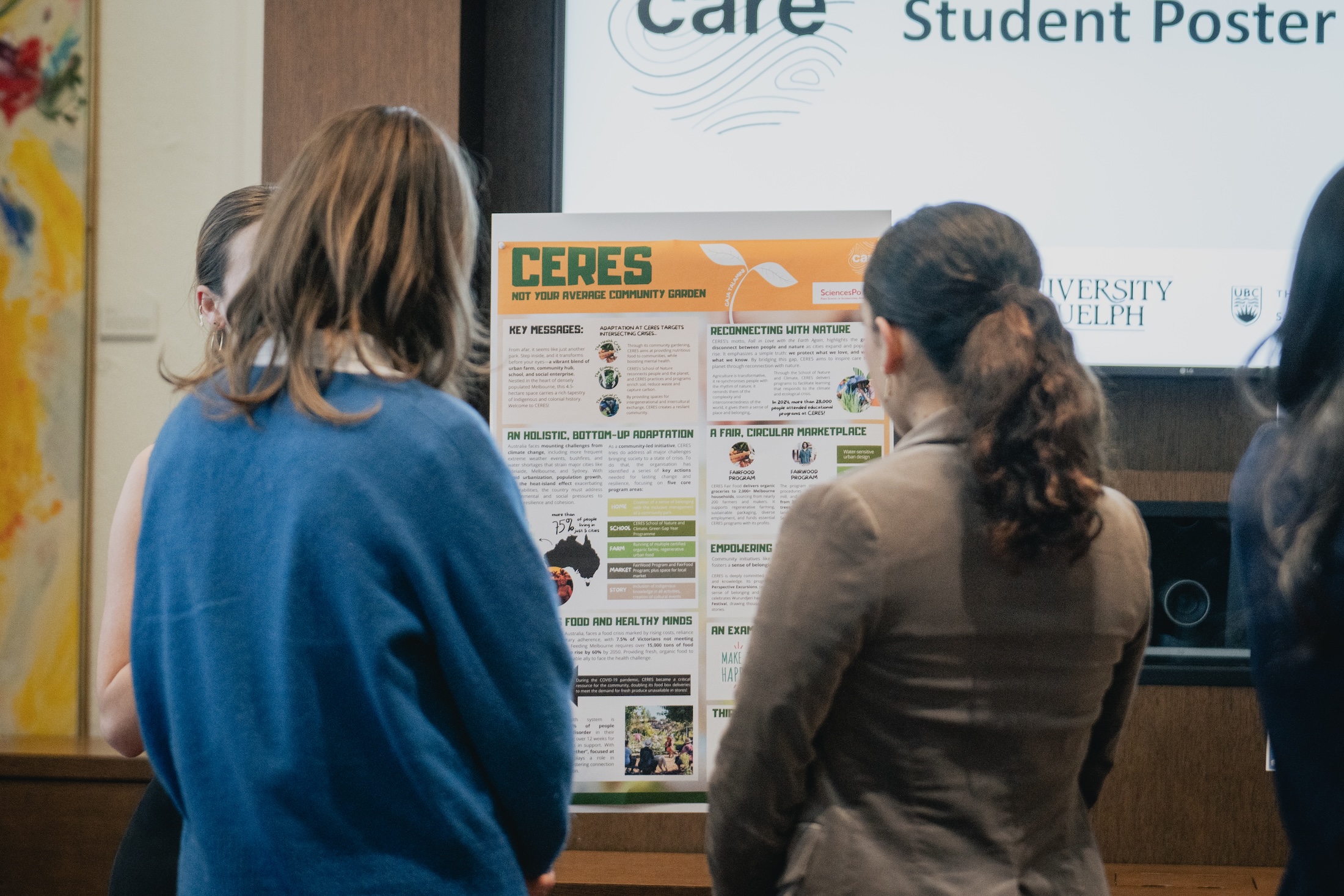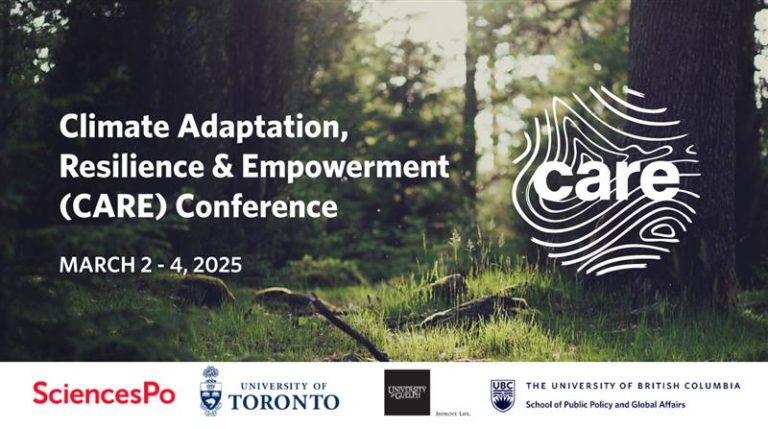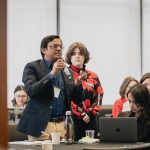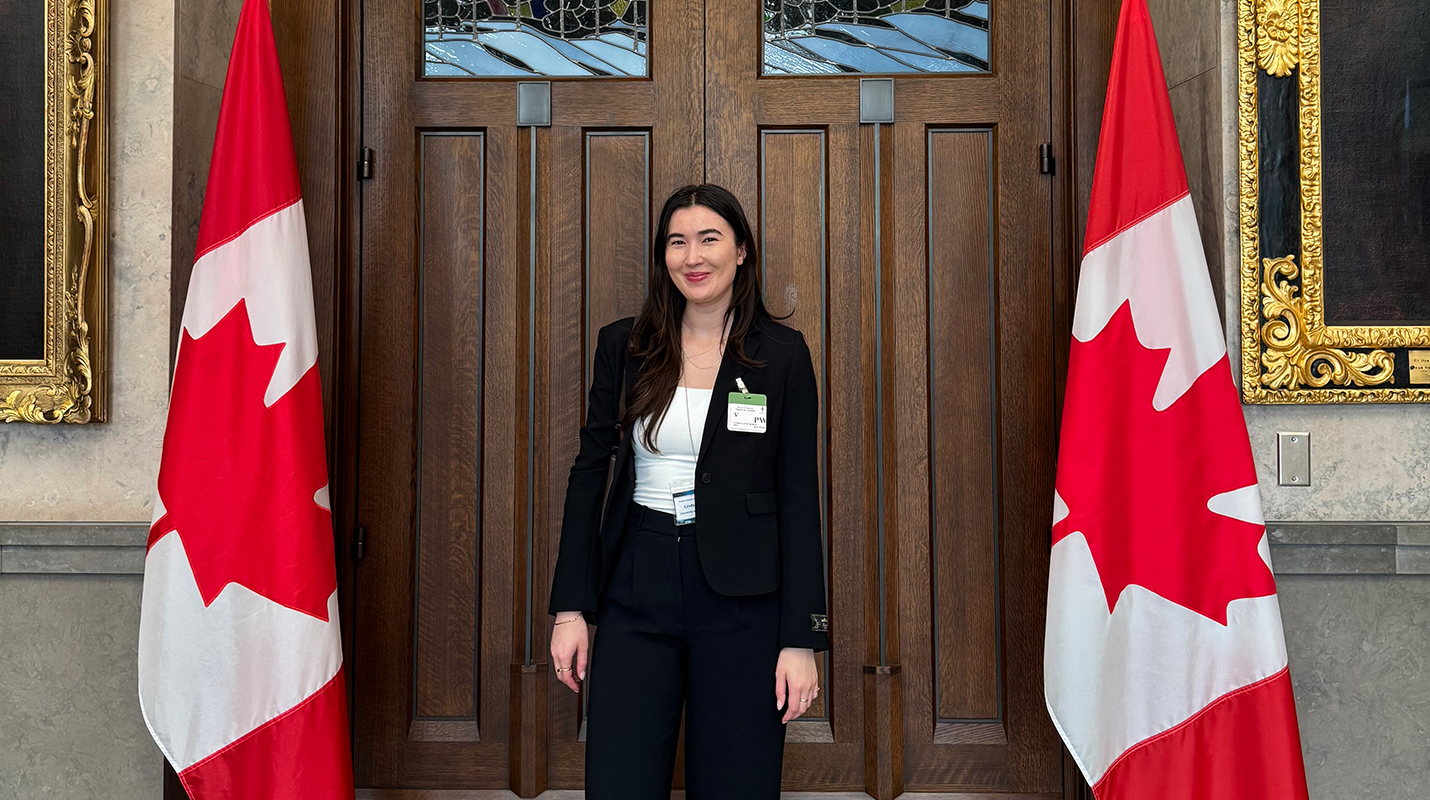As a part of the Climate Adaptation, Resilience and Empowerment (CARE) Program, a multi-year, multi-institutional partnership that seeks to prepare and energize the next generation of global environmental leaders and citizens, this year’s CARE conference was hosted by the Munk School of Global Affairs and Public Policy at the University of Toronto.
A delegation of 11 UBC faculty, staff and students came together with close to 100 participants from all four CARE partner institutions as well as leading experts from the public and private sectors to address the conference theme: “Integrated Approaches to Climate Change: Adaptation and Mitigation”.
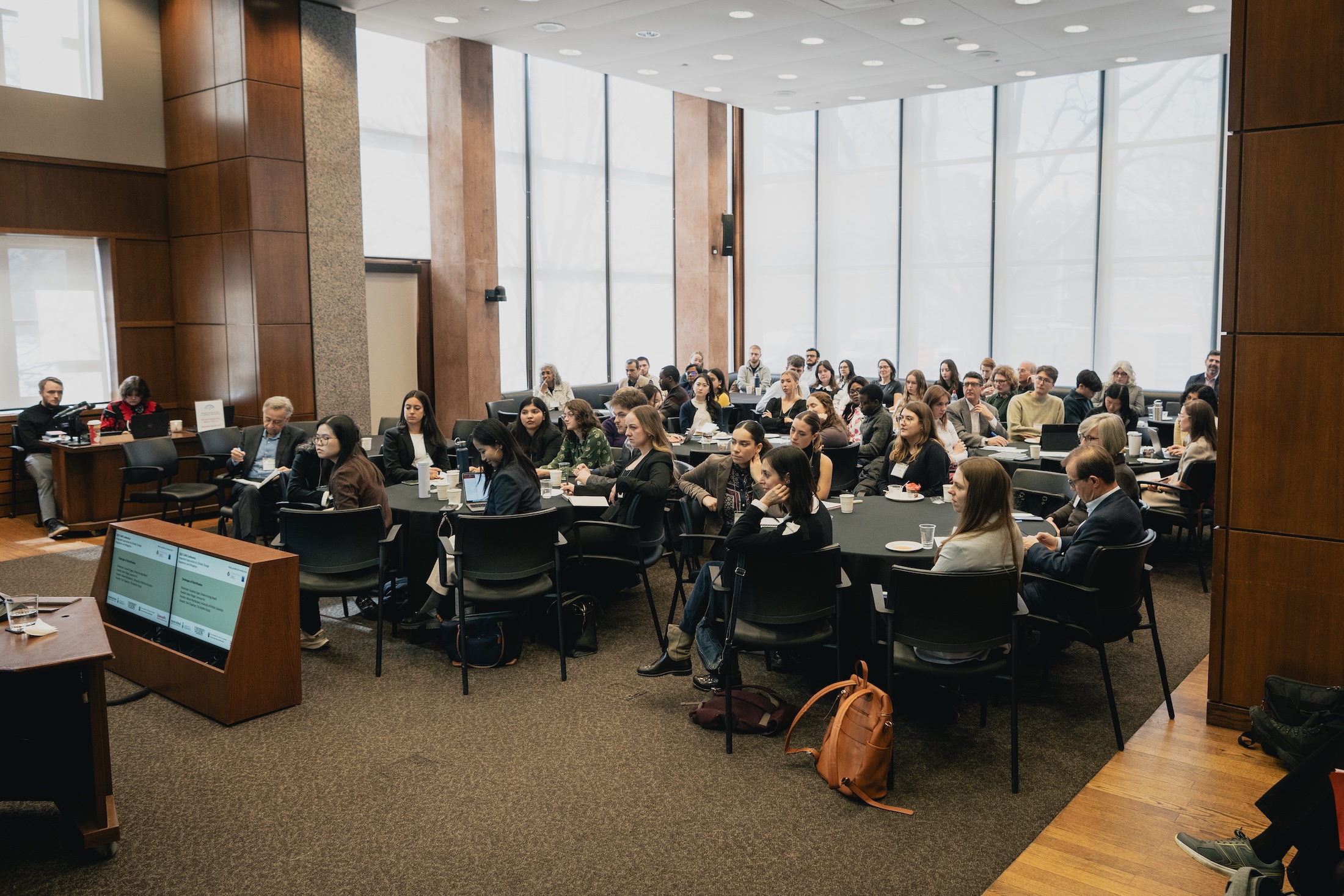
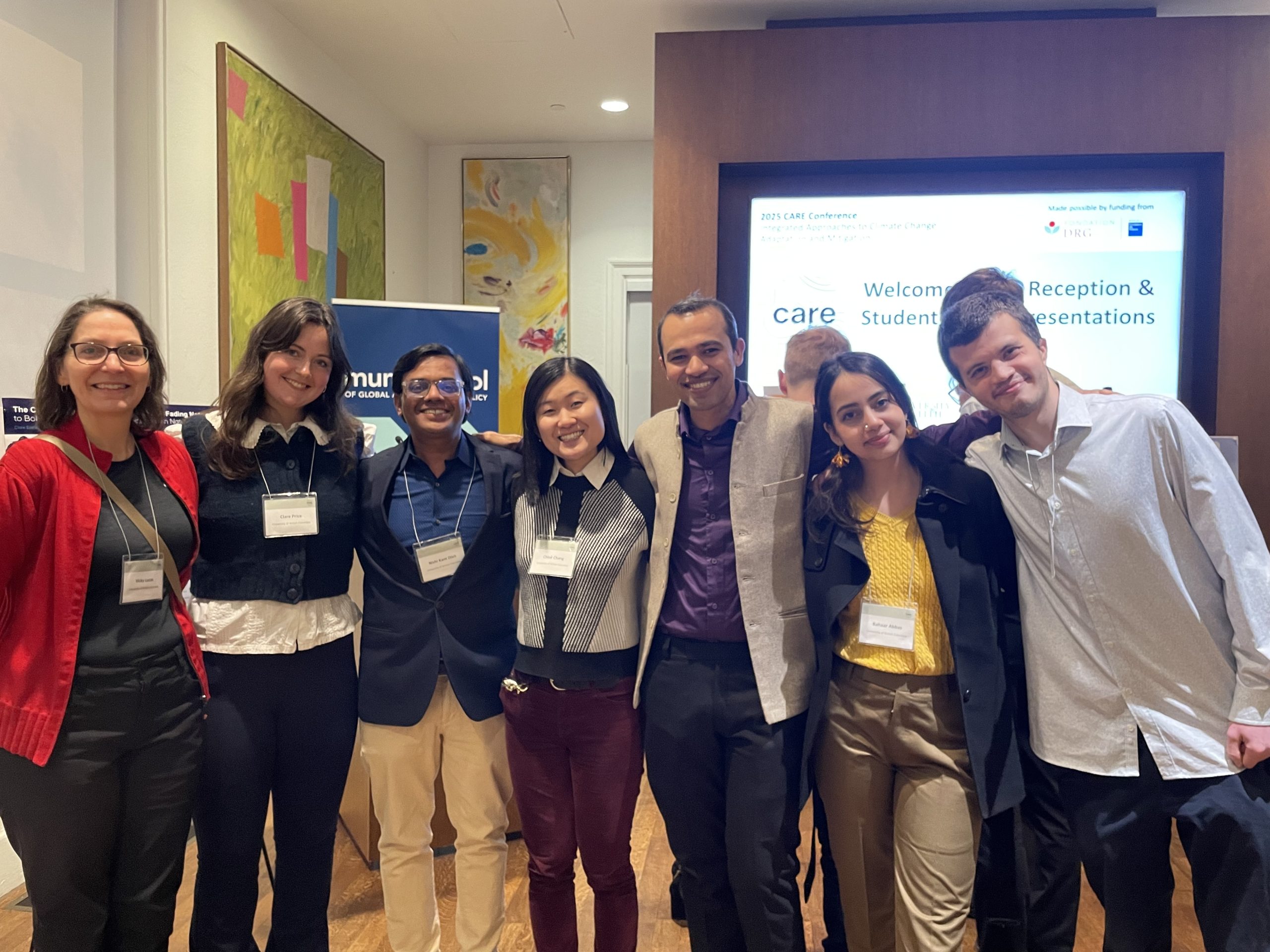

Over the course of the two-day conference, delegates participated in panel discussions on the ‘future of fossil fuels’, ‘challenges of electrification’, and ‘adaptation and mitigation at the local level’, networking opportunities, and hands-on tours of lab and field facilities at both University of Guelph and University of Toronto. Graduate students from all four institutions had the opportunity to present their climate-related research through a poster presentation at a reception on the second day.
- Panel discussions – challenges of electrification
- SPPGA Director, Allison Macfarlane
- Poster presentations on climate-related research
- SPPGA Professor, MV Ramana
- Lab tours
- MPPGA Student, NIshi Kant Dixit
Graduate students had the unique opportunity of forging connections with peers at other institutions and identifying areas of collaboration across various research projects, making connections with industry leaders including James Nowlan (Executive Director, Environment and Climate Division with the City of Toronto), Nick Xenos (Executive Director, Centre for Greening Environment with Treasury Board of Canada Secretariat), Peter Fraser (Board of Directors, Canada Energy Regulator) and Susanna Zagar, (Chief Executive Officer, Ontario Energy Board).
Delegates also enjoyed visiting University of Guelph’s Heartwood Farm & Cidery (a 42-acre farm in dedicated to regenerative agriculture practices and biodiversity on their land), as well as the Turf Grass Institute and Elora Research Station.
